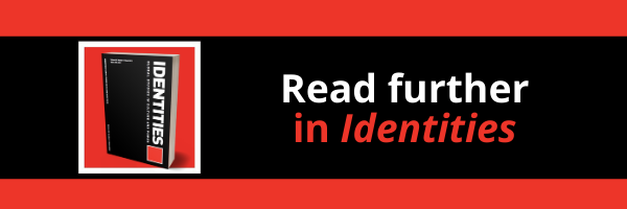|
|
|
UNESCO’s Atlas of Endangered Languages recognises over 2,500 endangered languages worldwide. Languages represent not just a form of communication, but also the cultural knowledge of that language. However, in his book Language Death, David Crystal estimates that the world is in danger of losing nearly half of all accumulated knowledge at the current rate of language loss. With language intrinsically tied to culture, many communities that experience a decline in the use of their native language perceive it as a sign that their culture is dying. The result is often that older generations look for ways to maintain, transmit and revitalise use of their language through younger generations.
The internet is intrinsically connected to issues of language and cultural identity. As language is the primary means for spreading cultural information, internet resources in minority languages can empower speakers of these languages by enabling them to display their own way of life and voice their concerns and issues in their mother tongue. In this way, they may revitalise their languages, reinforce cultural symbols and strengthen cultural identities.
In our Identities article, ‘Don’t lose your moustache: community and cultural identity on the Uyghur internet in China’, we consider how one ethnic group, Uyghurs, have utilised digital media to communicate and negotiate a collective cultural identity during a period when restrictions on Uyghur cultural expression were increasing in their home region of Xinjiang Uyghur Autonomous Region (XUAR).
Uyghurs are an officially recognised ethnic minority group within China, where Han Chinese are the dominant ethnic group and Mandarin is the language of instruction in most state-run schools. Uyghur is a Turkic language, and most Uyghurs identify as Muslim. There are nearly twelve million Uyghurs within XUAR. After the authorities attributed a series of violent acts in the XUAR and other parts of China to Uyghur separatists, Chinese government policies forbidding or curtailing many forms of Uyghur cultural expression have been implemented in the region. As a result, Uyghur culture and language are increasingly under threat. Policy shifts include a reduction in Uyghur language education in formal schooling, and restrictions on many customary Uyghur Islamic practices. The article reports on data collected from the online community forums of four Uyghur language websites that were active between 2014–2016, a time when increasingly restrictive policies were coming into force. Findings of our study demonstrate how these Uyghur language websites served as a platform for an online community to negotiate their cultural identity and strengthen community ties. Uyghur individuals posted materials that built cultural knowledge by cultivating Uyghur language use and informing the online community of issues specific to Uyghur culture and identity. These include, for example, the challenges of being faced with stereotypes about Uyghurs, like the assumption that they are all good singers and dancers but do not get recognised for other accomplishments. The websites also reinforced cultural pride and encouraged community cultural support by promoting members of the community who have made noteworthy achievements and urging others to support their endeavors. For example, when a well-regarded Uyghur individual opened a Uyghur language school in order to preserve the language into the next generation, everyone was called upon to donate to it and ensure its survival. This online activity fostered community linkages among a diverse population of Uyghurs through their use of a common language.
Image credit: Photo by Marvin Meyer on Unsplash
Blog post by Rebecca Clothey, Drexel University, USA
Read the Identities article: Clothey, Rebecca & Meloche, Alysha. Don’t lose your moustache: community and cultural identity on the Uyghur internet in China. Identities: Global Studies in Culture and Power. DOI: 10.1080/1070289X.2021.1964783
Explore other relevant Identities articles:
Connectivity, contestation, and cultural production: an analysis of Dominican online identity formation Digital institutions: the case of ethnic websites in the Netherlands Place as social identity: an analysis of the spatial enactments of community loss and activism within the built environment surrounding Grenfell Tower
0 Comments
Your comment will be posted after it is approved.
Leave a Reply. |
|
Explore Identities at tandfonline.com/GIDE |
|
The views and opinions expressed on The Identities Blog are solely those of the original blog post authors, and not of the journal, Taylor & Francis Group or the University of Glasgow.


